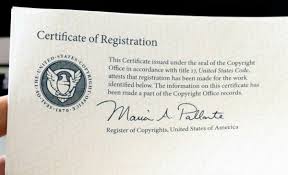The Supreme Court accepts appeals of very few copyright cases. In the last 20 years it has decided only 14 copyright cases, and most of those involved narrow, highly technical issues of copyright law.
However, the Copyright Act (which contains 150,000 words or 250 pages of single-spaced text), is mostly a law of technicalities.
One of these technicalities arises out of the fact that copyright registration is a precondition to filing a copyright infringement suit. However, the Copyright Act is not entirely clear on what this means: must a copyright plaintiff obtain registration from the Copyright Office (or, in rare cases, a denial, but in any case a decision on its application) before it may file suit for copyright infringement? Or, is it enough that the plaintiff has filed an application for infringement, permitting the suit to proceed while the application waits to be acted on by the Copyright Office, a process that typically takes about eight months?
The federal circuit courts have been divided on this issue. Some circuits hold that it is sufficient to have simply filed a registration application as a precondition to filing suit; other courts have held that a would-be copyright plaintiff must wait until the Copyright Office has acted on the registration request, the so-called “registration approach.”
Why does this matter? One reason is the statute of limitations – copyright owners face a three year statute of limitations, and an owner who files an application late in this three year period risks losing the right to enforce the copyright in an infringement action because of the time needed to review an application.
Another reason may be if the copyright plaintiff is seeking a preliminary injunction and can’t wait eight months for a standard registration to be issued.
While the Copyright Office does allow expedited applications (or “special handling”), the fee for this is $800 per application (versus $35 for a normal registration, so long as the applicant can wait eight months), an expense and delay most copyright plaintiffs are reluctant to incur, particularly when many copyright suits involve more than just one work, in which case the $800/work cost can become exorbitant.
The Court of Appeals for the Eleventh Circuit had this issue presented to it in Fourth Estate Public Benefit Corp. v. Wall-Street.com, LLC. In a decision issued in May 2017 the court highlighted the circuit split over this issue, noting that the Tenth Circuit requires that the registration be acted upon, while the Fifth and Ninth Circuits require only that the application have been filed. The remaining circuits either have not opined on this issue or have given unclear (and in the case of the Seventh Circuit conflicting) guidance.
In Fourth Estate the Eleventh Circuit sided with the Tenth Circuit, holding that the law requires that the Register of Copyrights have acted on the application before a copyright owner can file an infringement action.
The copyright holder appealed to the Supreme Court, and on June 28, 2018, the Supreme Court accepted certiorari in this case. Therefore, it will likely decide this issue during the 2018-2019 Term.
The issue is not one of constitutional magnitude — rather, it is a question of reading and interpreting the Copyright Act as written and enacted by Congress, along with whatever legislative history the parties can locate that bears on Congress’ intent. The law is sufficiently ambiguous (as reflected in the circuit split) that the Supreme Court could come out either way.
It will be helpful to have this issue resolved either way, since it is common for copyright plaintiffs to have not registered their works when they first consult an attorney. The attorney is then forced to determine whether a case can be filed in their circuit while registration is pending (as noted, most circuits haven’t decided this issue, making the decision more difficult), or whether the case cannot be filed until registration is completed. The attorney must then factor in the urgency of the legal claim and decide whether to advise the client to pay the additional expense required to expedite the registration. All-in-all, an unnecessarily complicated set of decisions.
If you’re interested in following this case as briefs are filed with the Supreme Court you can do so on the SCOTUSblog page dedicated to this case. The parties’ petitions for certiorari, as well as the Solicitor General’s brief on behalf of the United States urging the Court to accept review of this case and expressing its support for the holding of the Eleventh Circuit, are already available on SCOTUSblog.
Update: The Supreme Court ruled that registration is a prerequisite to filing a copyright case. Decision here.
